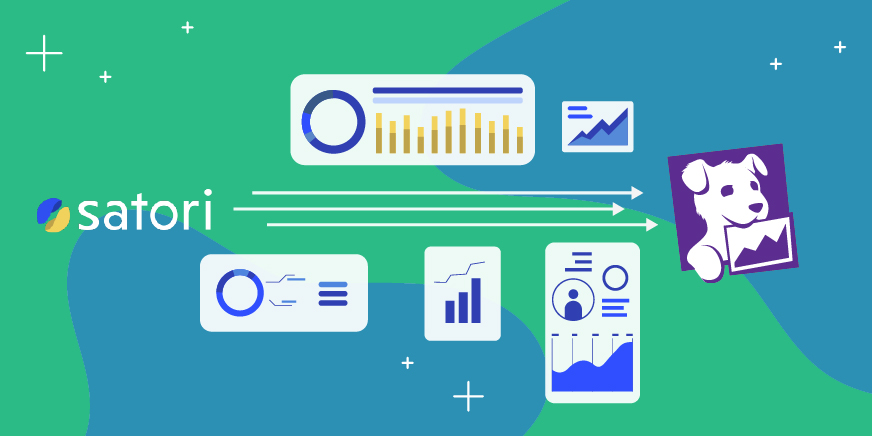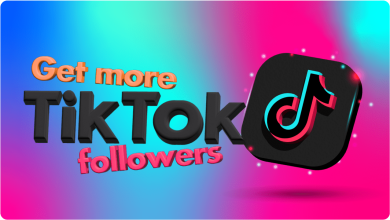In today’s data-driven world, organizations are increasingly recognizing the importance of effective data governance. As data privacy regulations tighten and the volume of data generated continues to soar, businesses require robust solutions to manage, protect, and leverage their data assets. Immuta has emerged as a leading player in the data governance arena, offering innovative solutions for data access control and compliance management. However, various alternatives are available, each with its strengths and unique offerings. In this article, we will take a comparative look at leading data governance immuta altenratives, helping organizations make informed decisions when choosing the right solution for their needs.
Understanding Data Governance
Before diving into the alternatives, it’s essential to understand the concept of data governance. Data governance encompasses the policies, processes, and standards that ensure the effective management of data throughout its lifecycle. Key aspects of data governance include:
- Data Quality: Ensuring data accuracy, completeness, and reliability.
- Compliance and Security: Meeting regulatory requirements such as GDPR, HIPAA, and CCPA to protect sensitive information.
- Data Stewardship: Assigning roles and responsibilities for managing data assets.
- Policy Management: Establishing and enforcing policies regarding data access, usage, and sharing.
As organizations prioritize data governance, they need tools that streamline these processes and enhance collaboration among teams.
Overview of Immuta
Immuta is recognized for its advanced capabilities in dynamic data governance. The platform focuses on automating data access control and compliance management, allowing organizations to respond to regulatory requirements efficiently. Key features of Immuta include:
- Dynamic Data Masking: Provides real-time data masking based on user roles and data sensitivity, ensuring that sensitive information is protected.
- Automated Policy Enforcement: Enforces compliance with regulatory standards through the automation of policy application and management.
- Collaboration Tools: Facilitates effective communication and collaboration among data teams, enabling them to share insights and governance policies easily.
Despite its strengths, Immuta may not be the perfect fit for every organization. Here are several noteworthy alternatives that can address different data governance needs.
Leading Alternatives to Immuta
Collibra
Overview: Collibra is a leading data governance platform that focuses on data stewardship and compliance management. It offers a comprehensive set of tools designed to help organizations manage their data assets effectively.
Key Features:
- Data Catalog: Collibra provides an extensive data catalog that helps organizations maintain an inventory of their data assets.
- Workflow Automation: The platform streamlines data governance processes by automating workflows, approvals, and notifications.
- Collaboration Tools: It promotes teamwork by allowing data stewards and business users to collaborate on data governance initiatives.
Why Choose Collibra?: Collibra is particularly suitable for organizations that prioritize data cataloging and stewardship. Its user-friendly interface and robust features enable effective collaboration among teams, making it easier to manage and govern data assets.
Alation
Overview: Alation is renowned for its powerful data cataloging capabilities and intelligent data governance features. The platform combines machine learning with human collaboration to enhance data discovery and usage.
Key Features:
- Machine Learning Integration: Alation uses machine learning to automatically classify and tag data, improving data discoverability.
- Governance Workflows: The platform supports customizable governance workflows that help manage data access and compliance processes.
- Collaboration Capabilities: It encourages collaboration among users, enabling them to share insights and annotations on data assets.
Why Choose Alation?: Alation excels in organizations where data discovery and user collaboration are critical. Its advanced features enable users to find relevant data quickly, facilitating informed decision-making and compliance.
Talend
Overview: Talend is an open-source data integration platform that provides data governance features along with data quality and integration tools. The platform is designed to help organizations manage their data effectively.
Key Features:
- Data Quality Management: Talend offers tools to cleanse, enrich, and monitor data quality throughout the data lifecycle.
- Integration Capabilities: The platform supports various data sources, allowing seamless integration of data across the organization.
- User-Friendly Interface: Talend provides a simple and intuitive interface for data governance and management tasks.
Why Choose Talend?: Talend is an excellent choice for organizations seeking an open-source solution that emphasizes data quality and integration. Its flexibility and customizable features make it suitable for businesses that want to tailor their data governance approach.
Informatica
Overview: Informatica is a well-established leader in the data management space, offering comprehensive data governance solutions. It provides organizations with the tools needed to manage their data assets securely and efficiently.
Key Features:
- Data Governance Framework: Informatica offers a structured framework for managing data governance policies and compliance.
- Automated Data Discovery: The platform automates the identification and cataloging of data assets, making it easier to maintain compliance.
- Robust Security Features: Informatica includes encryption, masking, and auditing capabilities to protect sensitive data.
Why Choose Informatica?: Informatica is ideal for large enterprises with complex data environments. Its extensive features for security and compliance make it a strong contender for organizations prioritizing data protection.
Microsoft Purview
Overview: Microsoft Purview (formerly Azure Purview) is a unified data governance solution that allows organizations to discover, classify, and manage data across on-premises, multi-cloud, and SaaS environments.
Key Features:
- Data Mapping and Classification: Purview offers automated data mapping and classification to simplify compliance management.
- Integration with Microsoft Ecosystem: The platform seamlessly integrates with other Microsoft products and services, enhancing its functionality.
- Powerful Search Capabilities: Users can quickly find data assets using the platform’s robust search functionality.
Why Choose Microsoft Purview?: Organizations that are heavily invested in the Microsoft ecosystem will find Microsoft Purview to be a natural fit. Its integration capabilities streamline data governance processes, making it easier to manage data across different platforms.
Data360 Govern
Overview: Data360 Govern is designed to provide organizations with complete visibility and control over their data assets. It focuses on data governance and data quality management.
Key Features:
- Data Lineage Tracking: Helps organizations understand the flow of data from origin to destination, enhancing transparency.
- Role-Based Access Control: Ensures that users only access data relevant to their roles, improving data security.
- Customizable Dashboards: Users can create dashboards that reflect their specific data governance metrics and KPIs.
Why Choose Data360 Govern?: Data360 Govern is suitable for organizations that require in-depth visibility into their data lineage and want customizable dashboards to monitor governance efforts effectively.
Factors to Consider When Choosing a Data Governance Alternative
When evaluating alternatives to Immuta, organizations should consider several key factors:
Business Needs and Objectives
Identifying the specific data governance challenges your organization faces is crucial. Understanding your goals—whether it’s enhancing data quality, ensuring compliance, or facilitating collaboration—will guide your selection process.
Usability and User Experience
Look for platforms that offer user-friendly interfaces and require minimal training. An intuitive solution will encourage adoption across teams and reduce the learning curve for users.
Integration Capabilities
Evaluate how well the solution integrates with your existing data infrastructure. The ability to connect seamlessly with current tools and systems is crucial for a smooth transition and effective data governance.
Scalability
Ensure that the chosen platform can scale with your organization’s growth. As data volumes increase and data environments become more complex, your governance solution should adapt to these changes.
Vendor Support and Community Engagement
Consider the level of support offered by the vendor, including training resources, documentation, and community engagement. A strong support system can significantly enhance the user experience and facilitate successful implementation.
Conclusion
While Immuta is a strong contender in the data governance space, various alternatives cater to different organizational needs and preferences. Solutions like Collibra, Alation, Talend, Informatica, Microsoft Purview, and Data360 Govern each offer unique features that may better align with specific requirements.
When selecting a data governance solution, organizations should thoroughly evaluate each alternative based on their specific needs, usability, integration capabilities, and support structures. By understanding the strengths and weaknesses of various platforms, organizations can make informed decisions that empower them to manage and govern their data assets effectively.
Ultimately, the right data governance solution will help organizations harness the power of their data while ensuring compliance, security, and ethical data usage in an increasingly complex data landscape. Embracing a data governance strategy that fits your organization will not only enhance data quality and compliance but also foster a culture of data-driven decision-making and innovation.





